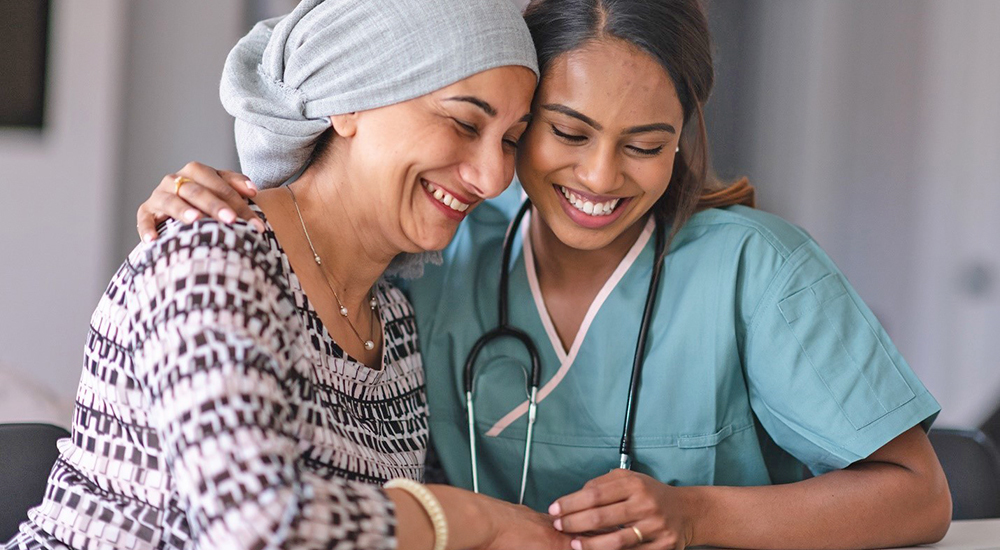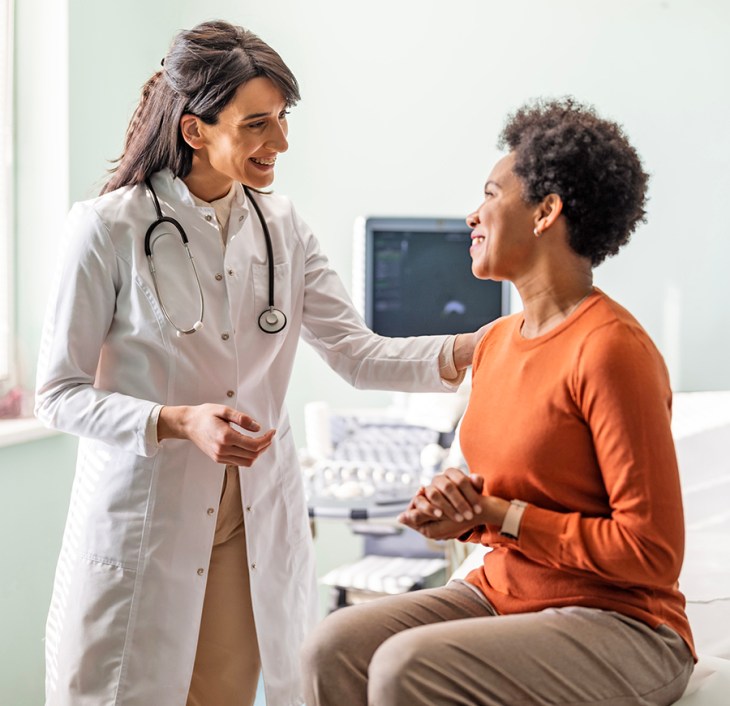May is Women’s Health Care Month, a time when we focus on making sure that women’s health care is a top priority and that women have access to the resources they need to address their unique health needs. It’s a chance for us to shine a spotlight on the important work that VA is doing to improve health outcomes and reduce health disparities among women Veterans.
Women are the fastest growing group of Veterans and currently make up 10% of the total Veteran population. Women Veterans are projected to comprise over 14% of the Veteran population by 2033 and 18% by 2040.
VA is focused on encouraging health equity as a top priority and ensuring that women Veterans receive the best possible care. This often takes place on a local level, as every VA Medical Center nationwide has a women Veterans program manager to advocate for women Veterans and help coordinate services from primary care to specialized care for chronic conditions or reproductive health.
Access to cancer care
As the number of women Veterans continues to grow, it is essential to address specialized health care needs, such as those related to cancer.
Women Veterans face unique challenges when it comes to cancer care. For example, their exposure to environmental toxins during their military service can increase their risk of certain types of cancer and the need for more targeted treatment strategies. Additionally, women Veterans may face barriers to accessing health care, such as the lack of transportation or juggling childcare needs.
To address these challenges, VA has launched several initiatives aimed at improving health care and access. VA’s National Oncology Program established the Breast & Gynecologic Oncology System of Excellence (BGSoE) to improve the quality of care for Veterans diagnosed with reproductive cancers, like breast, ovarian, uterine and cervical.
Coordinated and compassionate patient-centered care
The BGSoE’s multidisciplinary team includes medical oncology, gynecologic oncology, breast surgery, radiation oncology, advanced practice practitioner, pharmacy and nursing. The team is developing a system to ensure coordinated, integrated and compassionate patient-centered care, particularly for Veterans who need to navigate different health systems to receive care from various subspecialties.
Veterans also benefit from a collaborative network of providers, top-rated physicians and cancer care specialists nationwide through VA National TeleOncology (NTO). NTO allows cancer care providers to reach Veterans through telehealth at home regardless of where they are located. It delivers diagnostics and treatment for medical oncology, including rehabilitation and palliative care.
Infusion treatments offered solely at VA medical centers can often be inaccessible. NTO launched a pilot program called the Close to Me infusion service, which deploys chemotherapy certified nurses to administer anti-cancer therapy closer to where Veterans live. These nurses travel to community-based outpatient clinics, mobile infusion units and patients’ homes. Close to Me has saved tens of thousands of miles of travel for Veterans all over the country.
Driving equitable results
These initiatives have produced profound results. Although there are significantly longer time-to-treatment intervals for women with bladder cancer than for men within the private sector, those disparities were eliminated within VA’s equal access system.
This system also eliminated disparities in survival outcomes between Black and white patients with bladder cancer. These facts highlight the importance of VA’s work to reduce the financial and social barriers to care that ultimately counteract health disparities.
Here for you
Finally, VA recognizes the importance of providing ongoing support to women Veterans, through the Women Veterans Call Center, which provides information related to health care, benefits and other services, and will connect you to resources at your local VA medical center. This service is free, confidential, staffed entirely by women and is available 24/7.
If you have questions or can’t find what you’re looking for, call, text, or chat online with the Women Veterans Call Center at 855-829-6636 to get help and find available resources and services in your area.
Women’s health care is a year-round priority. VA is doing important innovative work to improve care for women Veterans and is committed to providing comprehensive care for women Veterans with cancer. These programs represent VA’s commitment to an equitable health care experience for our Veterans.
If you would like more information about cancer care at VA, visit cancer.va.gov.
Topics in this story
Link Disclaimer
This page includes links to other websites outside our control and jurisdiction. VA is not responsible for the privacy practices or the content of non-VA Web sites. We encourage you to review the privacy policy or terms and conditions of those sites to fully understand what information is collected and how it is used.
More Stories
For a group of Veterans at the Central Virginia VA Health Care System, Parkinson’s care includes a regular check-in to see what they’ve built with Legos.
Daughter and son-in-law find a diary of her father's life as a prisoner of war written on toilet paper.
VA announces positive Veteran satisfaction feedback on telehealth services, including video visits, in the first half of fiscal 2025.







Why when you call in to cancel an appointment it still show up in your records as a no show ? It makes this look bad for me,
So let’s change the name of the Woman’s Health Clinic to: The Uterus Clinic.
That way the guys can get their uterus checked too. Only 10% of veterans needing uterus care are women and maybe a trans guys or two. I hardly think this care is taking away from the other 90% of manly men care.
Why does the federal government, including unfortunately the VA, need to break citizens down by gender, race and ethnicity or religion, or some new grouping, when addressing programs or priorities etc?? We are all veterans, whether male or female, black, brown, white, yellow, or mixture of colors and we should EACH AND ALL, without any other definition other than VETERAN, be PRIORITIES! This government is tearing apart our society and our armed forces. KNOCK IT OFF!!
Yes indeed, Womens health is a top priority at the VA!
Meanwhile, men’s health is being left behind because of this. The older Vets like myself from Vietnam service seem to be taking a back seat. Of course we should be used to that shouldn’t we?
The VA should not be treating women, minorities, indigenous peoples any differently than ANY Vet regardless of gender or skin color.
roger that!